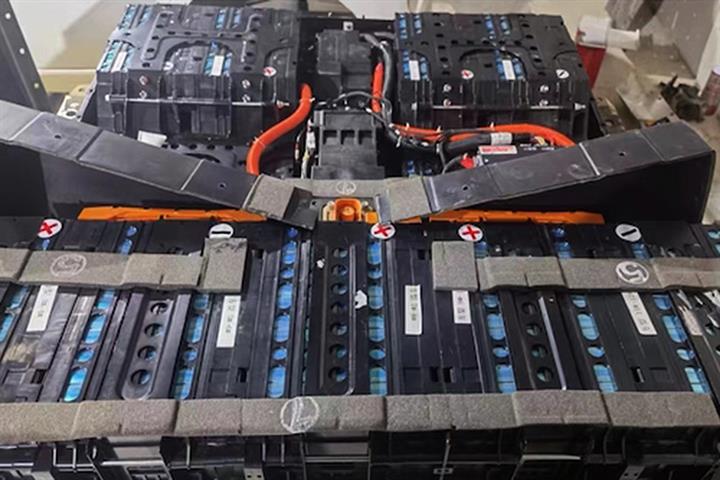 Small Polluters Dominate China's Lucrative Battery Recycling Market, Sources Say
Small Polluters Dominate China's Lucrative Battery Recycling Market, Sources Say(Yicai Global) Aug. 2 -- Uncertified and inefficient small workshops that use methods that pollute the environment make up the bulk of China’s fast-growing and profitable market for battery recycling, according to industry insiders.
China has more than 10,000 uncertified workshops that dismantle batteries, the head of a certified recycler in Hunan province said, adding that only 45 businesses are government-approved. And the secretary-general of the Zhongguancun New Battery Technology Innovation Alliance previously told Yicai Global that he believed 90 percent of waste batteries went to these small workshops before 2021.
Battery recycling has burgeoned as battery-grade lithium carbonate prices soared 10-fold to CNY500,000 (USD73,999) a ton over the past year, making its recovery a lucrative business. The extraction rate of lithium from ore is up to 3 percent, while the corresponding rate from old batteries is as high as 8 percent.
Old batteries can be surprisingly powerful. From 20 percent to 70 percent of each redundant battery's capacity can be harnessed again in some downgraded application scenarios. And prices have jumped across the value chain. Even waste batteries now cost several thousands of Chinese yuan per ton.
The government has set stringent requirements for the booming sector. At least 98 percent of nickel, cobalt, and manganese found in batteries must be recycled. The ratio for lithium is no less than 85 percent. Moreover, over 90 percent of the resulting wastewater should be processed.
Many of the battery recycling facilities, often based in southern Guangdong province and eastern China, process their input in ways that are not environmentally friendly, the Hunan firm’s boss said, adding that “technology is still at the core of the competition in the waste power battery recycling industry.” But many workshops fall below national standards.
Uncertified players also have some unfair advantages. They can offer higher prices for waste batteries as they are saving on operating expenses such as equipment and labor costs, the person said. That creates a business environment where the “good folks are weeded out by the bad ones.”
Editors: Liao Shumin, Emmi Laine, Xiao Yi